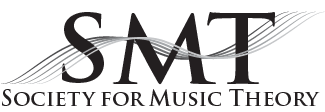Home › SJablonsky › Comments
Due to changing needs and technologies, the SMT Executive Board has decided to retire SMT Discuss (effective Nov. 9, 2021). Posts will be preserved for archival purposes, but new posts and replies are no longer permitted.
SJablonsky
About
- Username
- SJablonsky
- Joined
- Visits
- 24
- Last Active
- Roles
- Guest
- First Name
- Stephen
- Last Name
- Jablonsky
- Affliation or Location
- The City College of New York
- Website
- www.stephenjablonsky.net
Comments
-
Tonality is a harmonic system of functional relationships in which all chords have a measurable distance from a central pitch (the tonic).
-
Because I studied music theory in the mid-twentieth century everything we did was SATB with the intention of doing as well as, or better than, Bach. As an instructor of theory I realized the folly of that approach because a great deal of music is ot…
-
For years I designed my theory curriculum and textbook around the idea that we could successfully teach first semester students a well rounded and complete introduction to tonal theory. I firmly believed we did not have to wait three or four semeste…
-
Dimitar, I am one of those who spent six months of my life trying to understand the game plan of the Tristan Prelude and ended up writing a 10,000 word paper that no one wants to read because reading about theory is narcoleptic. At any rate, I am a…
-
A few years ago I put together a sight singing book that has 500 great melodies from folk and classical sources. It is divided into four semesters and runs from Pop Goes the Weasel to Stravinsky. Molto Cantabile! published by Kendall Hunt. The eBook…
-
Carson, You may be amused to know that for decades I have been sharing this listener's checklist with my Music 10100 students so they can react effectively when presented with a musical experience in and out of my classroom. Too many theory teachers…
-
I always think of a musical performance as a story telling experience. Story telling goes back millennia and music is a form of story telling that uses abstract sounds. There is nothing real about music, but, after you have listened to enough of it,…
-
I begin by stating that I learned more about theory from teaching it than by studying it. For me, music theory seems to have two purposes–to give students the tools to write their own music and the tools to find out why they like a particular piece …
-
The students sitting in my classes today are not the same people who went to school with me. Now, admittedly, that was a half century ago, but times they are a changing. My current students wouldn't hear a Neapolitan 6th if they fell over it. This g…
-
My students and I have come up with an important distinction between differing qualities of arrangements--if people who know the original work laugh during the performance of your arrangement you are probably in trouble.
-
Eric, Thanks for the input. I think we are getting closer to a defined distinction between transcription and arrangment, although many dictionaries use the one word to describe the other. The important distinction is the nature of the original compo…
-
Zach, Your last defining sentence prompts me to question at what point a transcription becomes an arrangement. How about 90% Chopin / 10% Jablonsky? 75% Chopin / 25% Jablonsky? 50% Chopin / 50% Jablonsky? Is 51% Jablonsky a recomposition? Just for t…
-
Carson, You touched upon one of the most fascinating aspects of all music theory--the relationship of the music to the ability of the astute audience to sing or dance to what they are hearing. It starts with the receiver's ability to discern shape…
-
I agree with Isaac. Repons was a piece composed for a large space performance only. It's raison d'etre was the interplay of voices coming from varying distances around the hall or gymnasium. I heard this piece at its New York premiere some time back…
SMT Discuss Manager: smtdiscuss@societymusictheory.org
